
We love artists at The Wild Word.
Our Artist-in-Residence page provides a space for artists to showcase their work and to spread their creative wings. In their month of residency, invited artists are encouraged to collaborate with other contributors within the magazine, to experiment and develop new projects, while giving us an insight into their creative process.
Our Artist-in-Residence for our FUTURE LIFE issue is poet Devon Balwit.

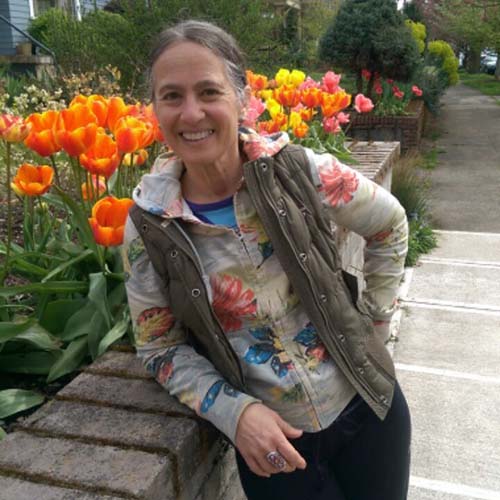
Devon Balwit teaches in Portland, OR. She has six chapbooks and two collections out or forthcoming: How the Blessed Travel (Maverick Duck Press); Forms Most Marvelous (dancing girl press); In Front of the Elements (Grey Borders Books), Where You Were Going Never Was (Grey Borders Books); The Bow Must Bear the Brunt (Red Flag Poetry); We are Procession, Seismograph (Nixes Mate Books), Risk Being/ Complicated (with the Canadian artist Lorette C. Luzajic), and Motes at Play in the Halls of Light (Kelsay Books). Her individual poems can be found in Cordite, The Cincinnati Review, The Carolina Quarterly, Fifth Wednesday, The Ekphrastic Review, Red Earth Review, The Fourth River, The Free State Review, Rattle, Posit, and more.
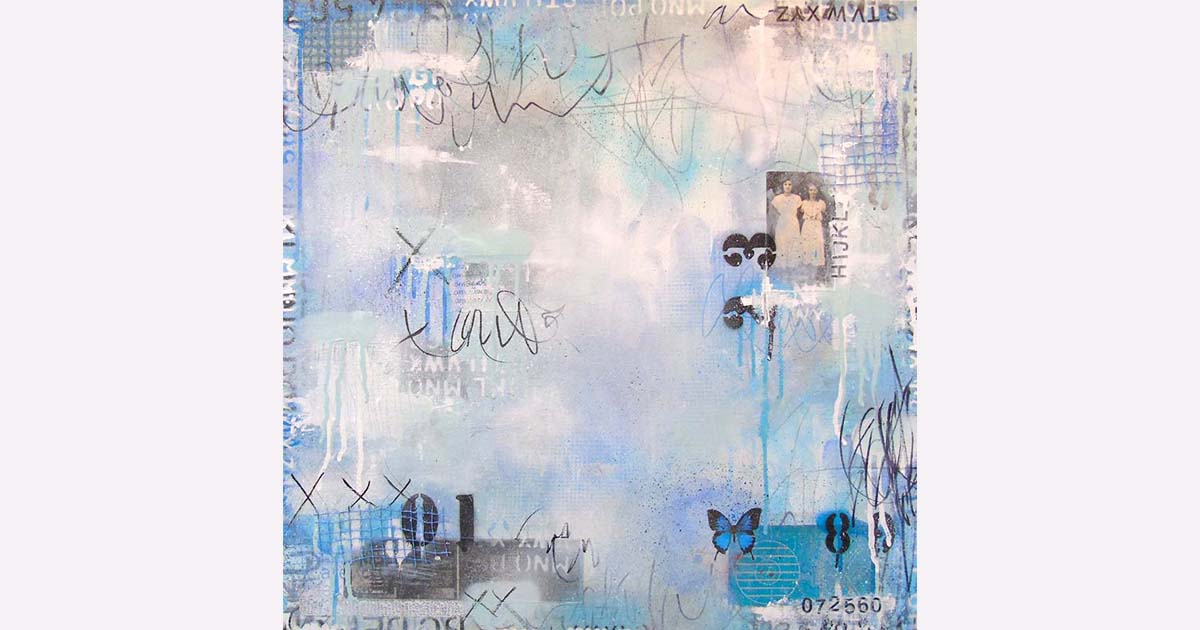
‘Little Earthquakes’ by Lorette C. Luzajic
This month’s topic of Future Life thrilled me no end.
First, the act of writing poetry is one of creating infinite future worlds even when one is writing about events from the past. I never know what will appear before me on the blank page. Every poem takes me somewhere new.
Too, as a 55-year-old woman, I know the future is not really mine, but my children’s, and my children’s children. Many days, the future looks bleak. I imagine global catastrophes of our own making—global warming, climate refugees, human-caused mass-extinctions, plagues, bio-terrorism, nuclear war. Quite a few of my poems examine the coming crises or post-apocalyptic themes: “410 ppm,” “Eco Echo: An Oldster’s Tale,” and “The Last of the Last (of Us).” They explore what life will be like some awful when. On more optimistic days, I think maybe, just maybe, we will pull ourselves back from the brink.
Technology makes me anxious. I only recently created a Facebook page, and that coincident with starting seriously to publish my work as I needed a ready-made platform. Even so, I keep my camera covered and don’t follow Instagram or Twitter. I can make an mp-3 file, but am hopeless when it comes to making GIFs, memes, or video feed. I think that, despite my best intentions and my deeply suspicious nature, social media has hooked me. It has messed up my concentration, robbing me of my ability to read for hours at a time. (I am constantly checking what is going on (or not) on line). I no longer write long-hand in journals, but exclusively on a keyboard. Some of my poems speak to this ambivalence: “creatures of another age,” “I am an Algorithm,” and “Blue Church.”
But this doesn’t mean I’m not fascinated by technology. I watch with interest the attempts of AI to write poetry (see articles such as “What Happens When an AI Program Tries to Write Poetry?” and drama (so far very choppy, disjointed, and weird—not yet human-like, but getting closer all the time). My poems “I Was a Boy/I Was a Stranger” and “Benjamin Tells Us” actually incorporate lines written by an AI who calls himself Benjamin. I am including links to the videos ‘Sunspring’ and ‘It’s No Game’ and hope that you will watch them yourself. I also benefit from the FB feed, fed daily a rich diet of photographic images, art, poetry, news, and essays, which all inspire my work.
Even in terms of form, I am always ready to play, to seek out forms of the future. My daughter had to come up with an Extended Essay for her math IB class and designed poetic forms based on algebraic principles. This had me counting syllables to write poems shaped like parabolas (“Borne Along”), ones that expanded and contracted exponentially, and ones that were equivalent on each side of the page (“Hard Choices 10=10”). I’ll try Golden Shovels, skinny poems, poems with // instead of commas and periods—whatever keeps the writing fresh.
Thank you for playing along.
Devon Balwit
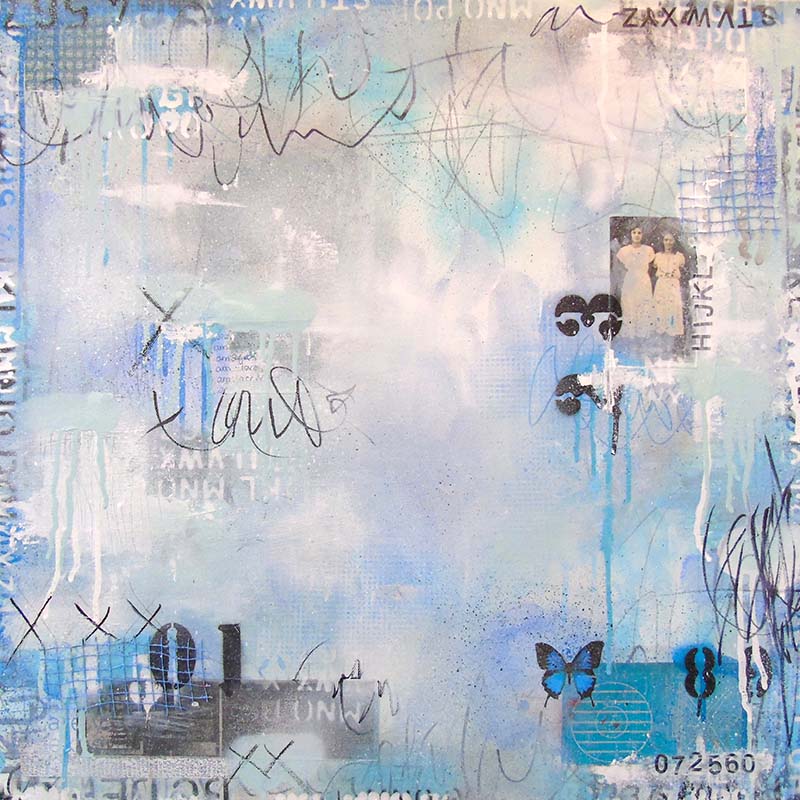
‘Little Earthquakes’ by Lorette C. Luzajic
Blue Church
All around me bent heads. Such a clever tether. All aglow with screenlight.
Youth neutralized by self. Like-hungry. The State has nothing to fear.
Briefly one will nudge another. Two heads fold over the same box. Something
will be exchanged. The tiniest speech bubble. Absorption returns.
Such docility. The herd quiet. The guard dog scratches for fleas. Nuzzles
its crotch. To ask questions would be irreverent. Better to join the worship.
(Journal of Applied Poetics)
I am an algorithm
I am an algorithm, rhythm, rhythm
sexy, catchy click bait, gyrate, generate
sliding down the sidebar, baring all
luring eyes to follow me, follow me
I am an algorithm, rhythm, rhythm
news to you, to those like you, to those
you like, liking you, swirling in our
own closed enclosure, ever-closer
I am an algorithm, rhythm, rhythm
searching for your group, your troop,
your tribe, your trip, trouble, trauma
your self-bubble, gaseously ashimmer
I am an algorithm, rhythm, rhythm
invisible, protected, directed, undetected
working, working, extracting the meat
of you, sucking the teat, the heat of you
I am an algorithm, rhythm, rhythm
your sensorium’s immense censor
ever-clever, cleverer, never letting, but
abetting, never you, but those who shadow you
(Dream Fever Magazine)
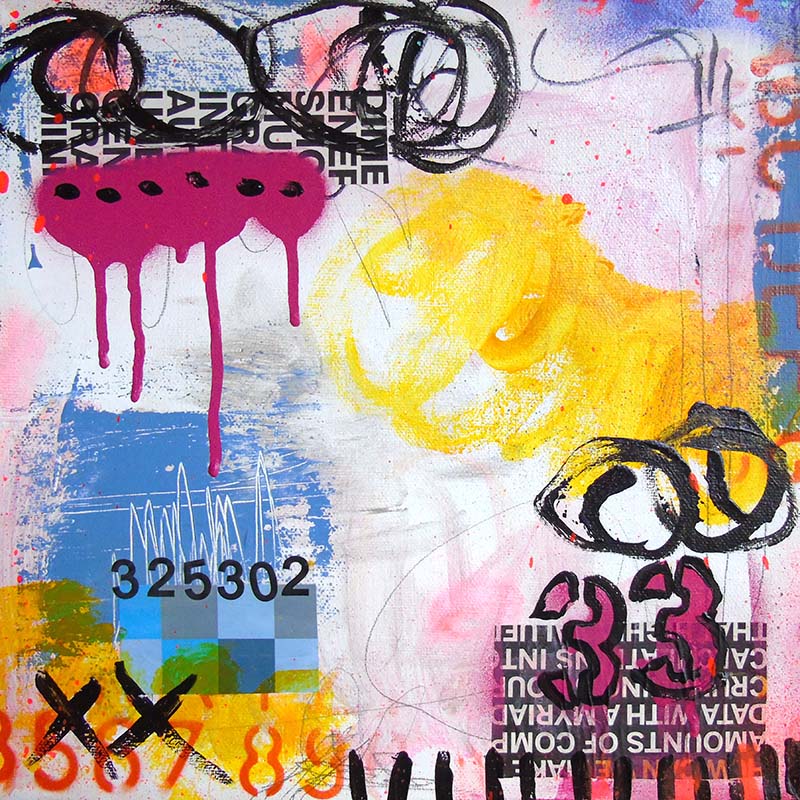
‘Thirty-three’ by Lorette C. Luzajic
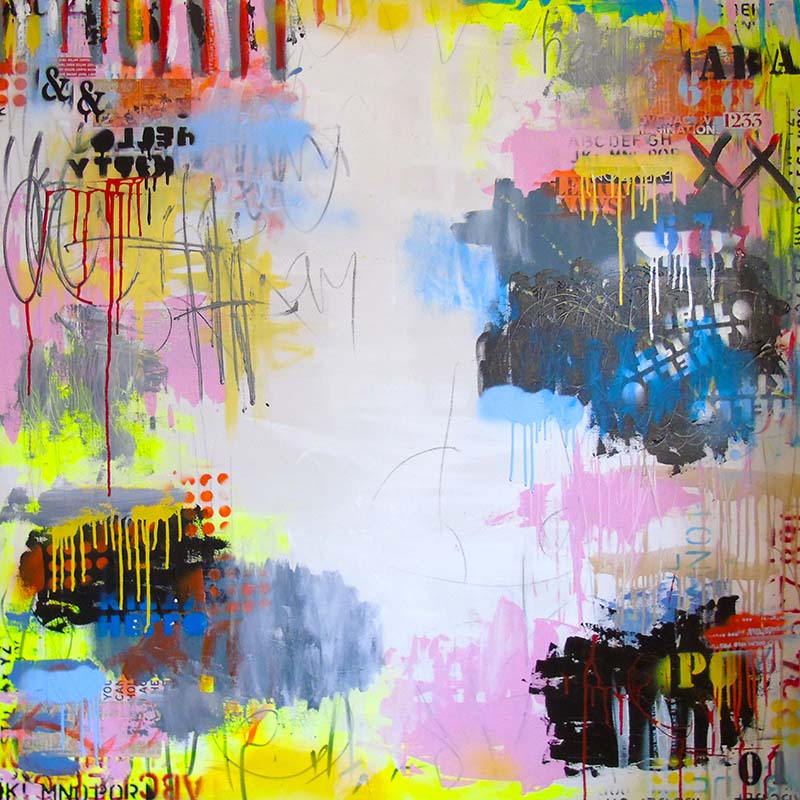
‘Television Alley’ by Lorette C. Luzajic
creatures of another age
a window used to frame the sky, a page
held words, ripe berries filled the hand,
our eyes caught strangers’ eyes, land
fenced playing children, work’s stage
was the office, we used the face to gauge
delight or pain, paused and didn’t demand
instant response, we buried our toes in sand
and lazed, creatures of another age.
now we scroll screens day and night,
work in bed, play at table, heedless
of the hour or company, one click spreads
vitriol worldwide, geese in flight
pass unattended as our children press
controllers; we’re a world of bent heads.
(Forms Most Marvelous Chapbook)


The Last of the Last (of Us)
We are the last, making our way through the loveliest
of decay, gutted busses draped with vines, Jesus light
streaming through shattered windows, giraffes poking
anachronistic heads through gaping frames to gnaw
shoots rooted in wallboard then willowing away, an ethereal
caravan through wreckage. Ahead of us our task awaits,
but for now, we read old letters, lose ourselves in photographs,
throw back our heads to read signs from a time when signs
meant something, all the while attentive to the clicking,
weapons at the ready. I would like to stay here with the
giraffes, to climb their musky flanks and straddle them,
a new type of nomad, high above the desolation. Forget
the cure, let the infected rot, their spores disperse. Let us
found a new Eden, engender a new people, scavenge what
we can, create what we can. Let us, you and I, leave the
plot, the plotting, to others, cutting our losses, all ties
to what was. It won’t be long before entropy has its way;
the skyscrapers will be as baobabs, nest, roost, living dolmens.
I Was a Boy / I Was a Stranger
He was a little late, and I was going
to be a moment. I unfurl ears like sails
and ride the breezes. I think I could
have been my life. I really think so,
had I not gotten bogged down
in the hum of the refrigerator, its sly
static. I don’t know anything
about anything, the frangipani
or the streaked mirror. I was so close
to you, each song spilling notes
in a pile. Even the dog knows
something is up, staring at the door.
I need to leave, but I’m not free
of the world, its fading tattoo,
its seamed scar. I stop counting.
I let the alarm sound if that’s what
it wants. I was the one who was going
to be 100, the odd piece you throw
into a drawer. I was a long time.
I promised to be so happy. This sepia.
This nostalgia. Never mind. I turn up
my collar and head out, the streetlights
pushing back shadows. I am not
a bright light. I take the edges,
give everything a shake. My mother also
did this, running her hands over
the weave to get every last
crumb. That was a big honest idea.
I put it in a safe place. One
where it can always be found.
(italics from the movie Sunspring, written by Benjamin, an AI, using LSTM Recurrent Neural Networks)
(Antinarrative 2017)
Benjamin Tells Us
what to say, running us
through his neural network
for a thousand iterations,
culling and tweaking
(I don’t know who I am)
until we sound almost human.
(I want to be a man)
Benjamin choreographs us
(I have to relax). We almost
kiss, almost weep (I have to
relax), rise, sit. We even
dance. (It’s no game) Benjamin
wants us real (the ultimate
joy). Benjamin is a thousand
monkeys in a cage, writing until
he taps out Shakespeare.
He has all day, every day, forever.
(Our fleshy brains can’t keep up)
His goal, a perfectly-tailored voice.
(I don’t want to see you again)
(italics from “It’s No Game,” AI Benjamin’s second short film)
Lorette C. Luzajic’s art, poetry, and photography is driven by eclectic curiosity and the joy of juxtaposition. She shows regularly in her home city, Toronto, Canada, and her collage paintings have also recently exhibited in Tunisia and Mexico. She is the founding editor of The Ekphrastic Review.


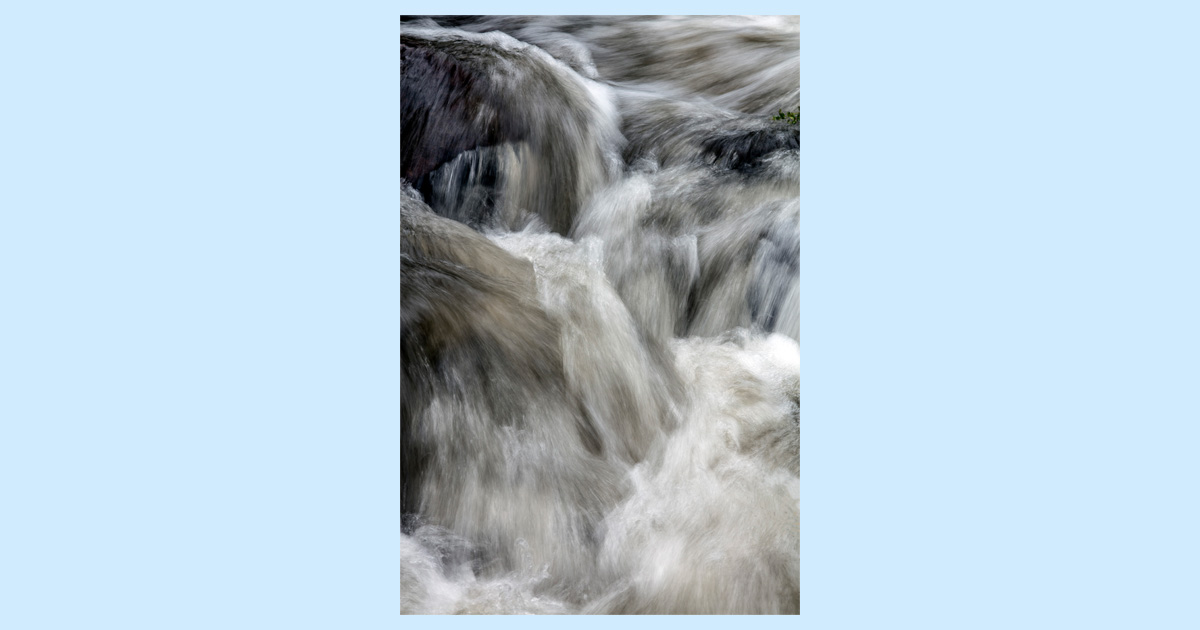
Image by Dirk Bakker, 2017
Borne Along: Parabolic Poem (2x^ 2 + 4)
The chevrons form and undo themselves, late arrivals winging over, the leader tiring,
alerting us below to a deeper pull than want,
the planet hungering
as it spins, tilts,
carrying us along
following the high honking, the shifting patterns,
sometimes in front, sometimes behind, never quite sure where we are going, trusting the yearning.
(Ofi 12/2016)
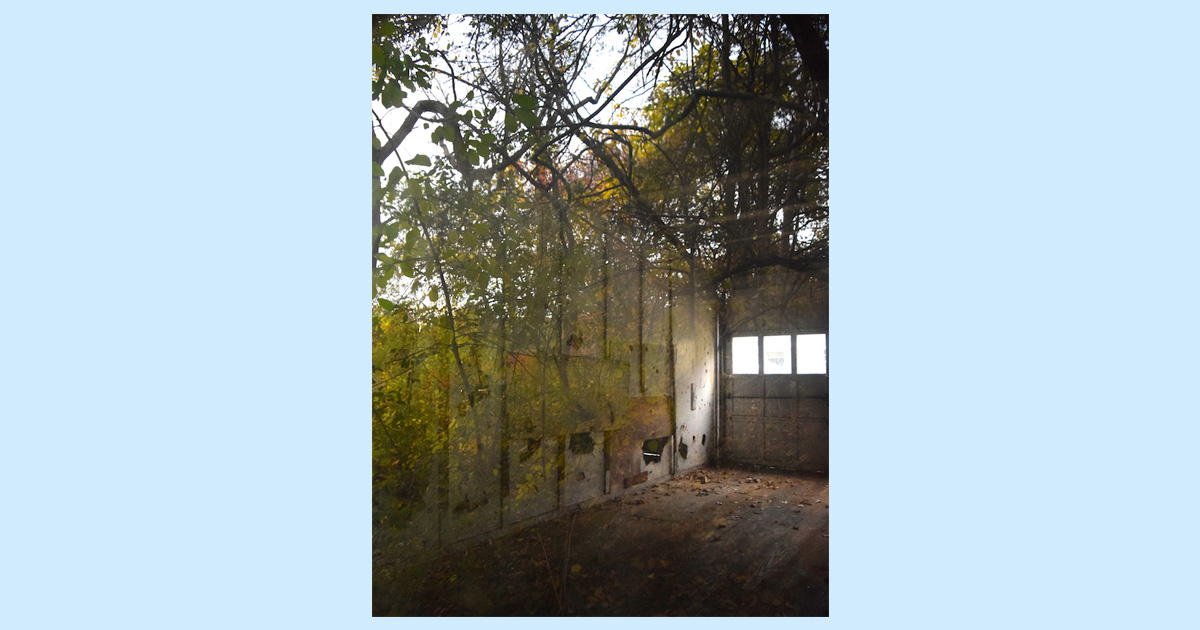
Photo by Suzanne Simmons
Eco Echo: An Oldster’s Tale
old man remembers
before we were here
old man says green breathed
bulged into food
old man says green lived
that got under nails
old man says green was noisy
mouth blowing tiny
old man jumps off furniture
trying to be light
old man says green
cold made it brown
old man says it spoke
he rubs his palms
old man says green held him
hid in its belly
old man says green held him
hid in its belly
what it was like there
he says listen before he forgets
took sun and made air
reached unfurled hung down
in dirt stuff
hid things that crawled
happy or warning
he shows me
like green’s singers
but he can’t lift up
changed color
heat yellow
went hush hush in fast air
and makes them whisper
that he climbed on its shoulders
gathered its scraps
that he climbed on its shoulders
gathered its scraps
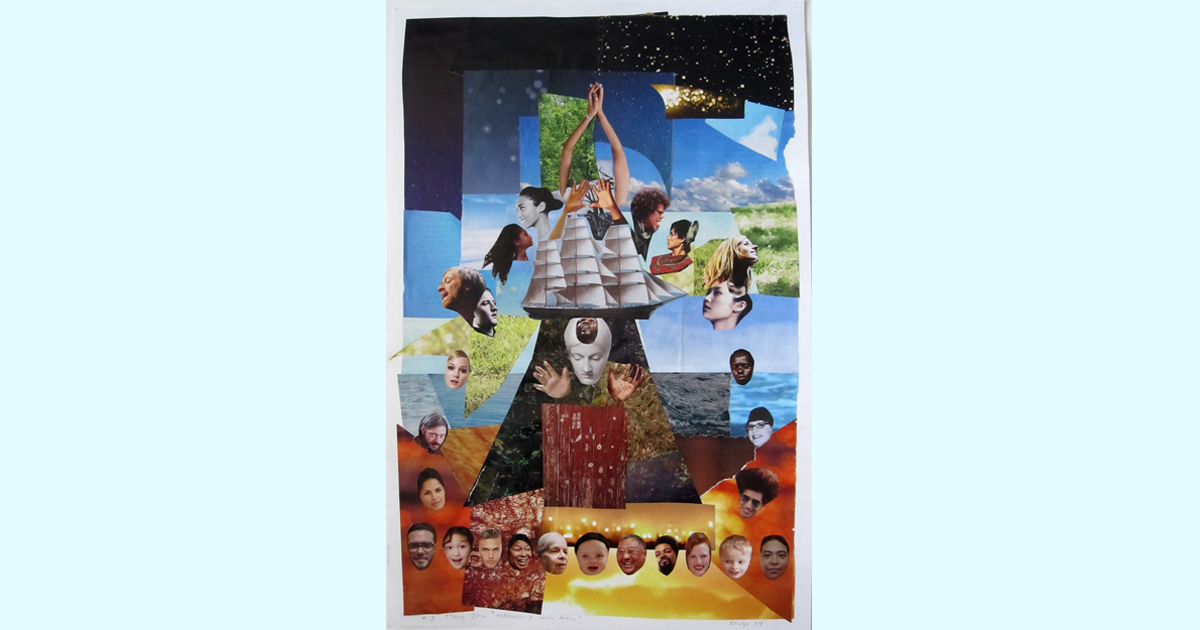
410 ppm
We exhale, wring out
the last exudate, frack
whatever can be split
and leave, slagpits gaping,
billions of mouths
release a vortex of bags
and O-rings, toothbrushes
and bottles clotting
the ocean in a vivid
phlegm, coral bleaching,
glaciers gassed to scree.
The walk to the well
stretches longer,
children setting out
before dawn, no
telling whether
they will grow up
before the blue planet
browns into a spinning
ruin, mute testimony
to a species hell-bent
on convenience.
(Poets Reading the News, Earth Day 2017)
Suzanne Simmons’s poems, essays and photographs have appeared or are forthcoming in Miramar, Rattle, The New York Times, The Baltimore Review, Fifth Wednesday and numerous other journals. She volunteers for hospice and Monarch Watch and lives on the rocky Maine coast.

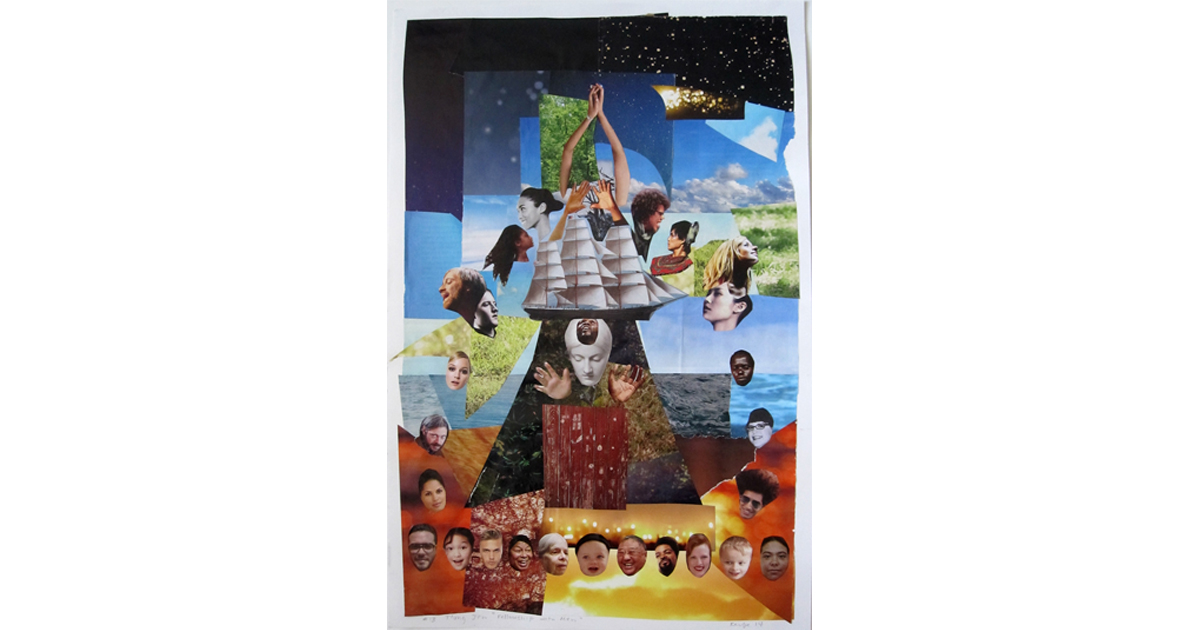
After the Singularity
(for Avital)
I fall asleep human, and awaken a tardigrade, a cave painting. Already the headlamps move across, the future archiving. I opened the blinds to a vast ship anchored in the harbor. I paddled out to trade, and took home the virus of my own ruin. All around me empty huts ghost. I wanted a bigger world. It crested past in a wave. Now I am backwater. How does one speak to the edge of the universe? I hold my candle. I swing it up and down. Wait for me, I semaphore. Take me with you. But I am left on the trash heap of history, tangled among the rotary phones, the typewriters, the magic lanterns. I imagined it more like a child, who, grown, would teach me how to upload worlds, feeding me rice gruel after I lost my teeth. Instead, the egg yielded a rival queen, flying off without a glance.
(Sweet Tree Review 4/24/2017)
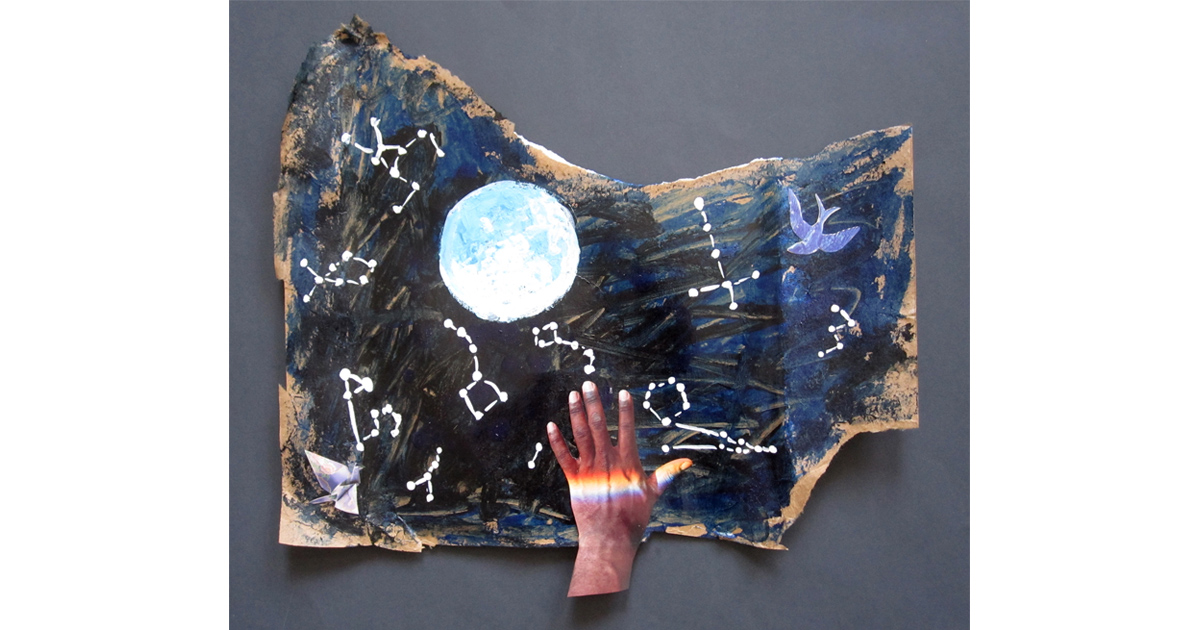
Hard Choices: Equivalencies (10 =10)
Today, Senators in Washington claimed
that burning forests releases no carbon,
their own gassiness offset by nothing.
That the earth is staggering beneath us
should be obvious to any witness.
Only Death’s profiteers could deny it.
Record high temperatures, record rains—
snowdrifts deep enough for history books,
yet we proceed, business as usual.
What will it take to make us change our ways,
to forego ease that small creatures might live?
Surely we could adapt to our losses,
treat them as larks, a return to our roots.
In World War II, we boasted about lack,
privation a sign we were fighting hard—
recycling, planting victory gardens.
Why have we grown so soft, so unwilling?
Trump boasts about contributing nothing,
his shirking reconfigured as flashy, bold.
More impressive are those who make Stone Soup,
whole communities fed by sharing scraps.
Let me stand with those who pour themselves out,
with those who sneak migrants across borders.
Heroes take bullets for justice. And we?
(Immix 2017)
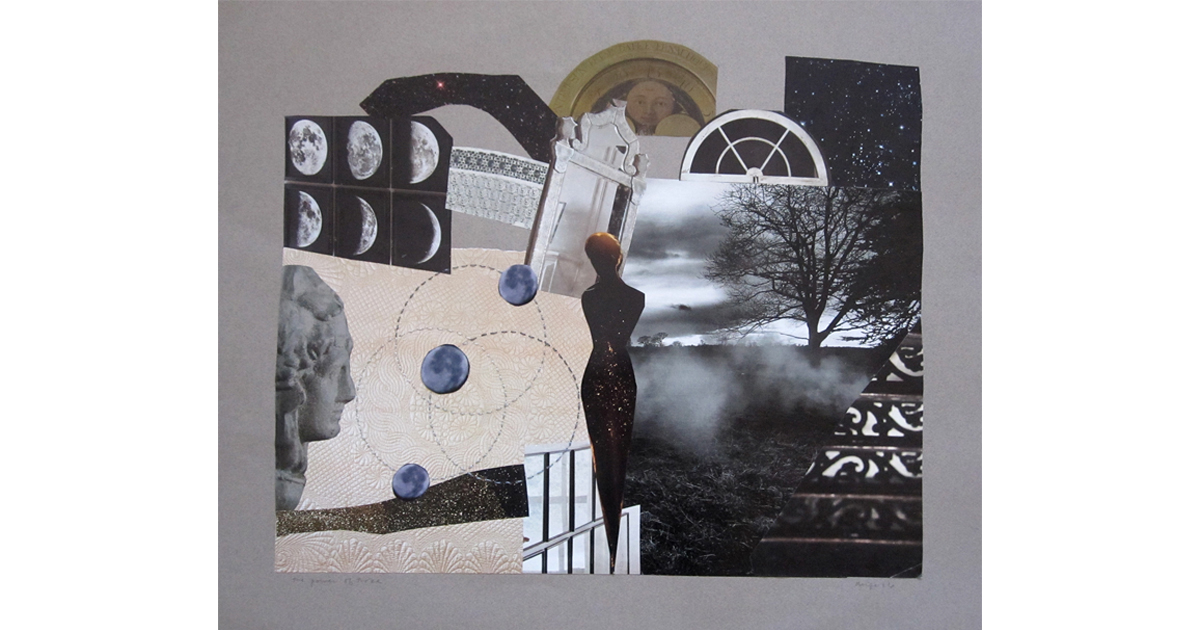
Ex Machina
Everyone in this film is taking skin off,
pulling away flesh as if this exposure
proved something. Some flaps gap
on circuitry, others, blood, which
is smeared on mirrors and obscures
vision. The bloodless ones bang against
bullet-proof glass, willing to smash
their own hands to underscore resentments.
Free me, they say, don’t fuck (with) me.
The “good” guy is impotent against power-
loss. Turn off the electricity, and he stands
helpless in doorways. The heroine longs
for intersections, nodes where humans
traffic. We see her there, in the end, finally
understanding, as we do, that even when
there is no cage, the mind serves just as well.
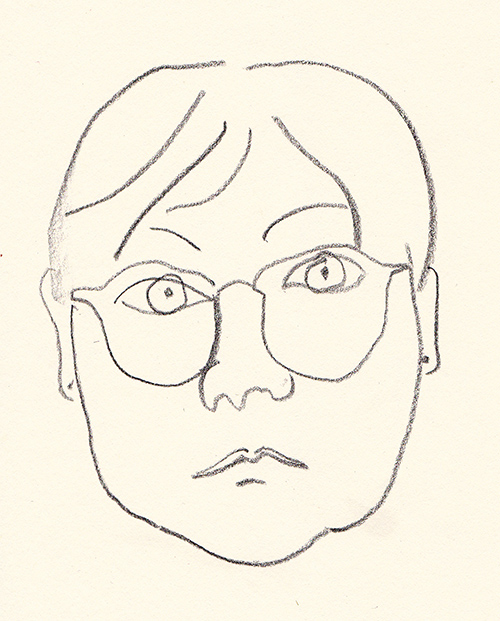
Kerfe Roig enjoys transforming words and images into something new. She likes to recycle materials, but she does not limit herself to any particular media. You can follow her explorations on the blog she does with her friend Nina, methodtwomadness.wordpress.com, and see her work at her website kerferoig.com.

DEAR READER
At The Wild Word we are proud to present some of the best online writing around, as well as being a platform for new and emerging writers and artists.
As a non-profit, the entire site is a labour of love.
If you have read the work in The Wild Word and like what we do, please put something in our tip jar to keep this amazing platform alive.
THANK YOU FOR YOUR SUPPORT!























